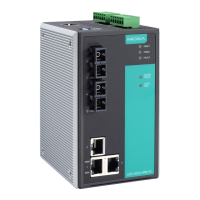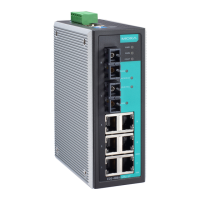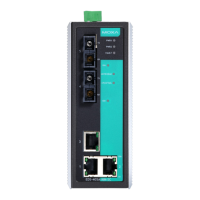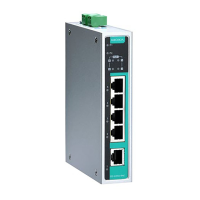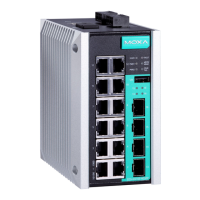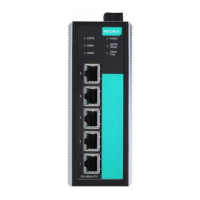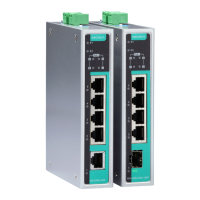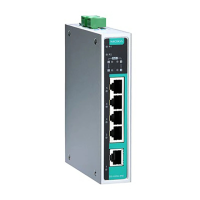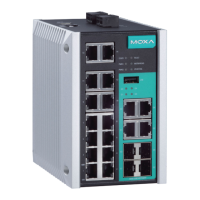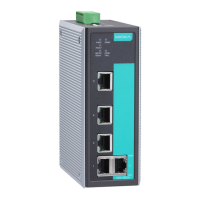ATTENTION
Safety First!
Be sure to disconnect the power cord before installing and/or
wiring your Moxa EtherDevice Switch.
Calculate the maximum possible current in each power wire and
common wire. Observe all electrical codes dictating the
maximum current allowable for each wire size.
If the current goes above the maximum ratings, the wiring could
overheat, causing serious damage to your equipment.
Please read and follow these guidelines:
y Use separate paths to route wiring for power and devices. If power wiring
and device wiring paths must cross, make sure the wires are perpendicular
at the intersection point.
NOTE: Do not run signal or communications wiring and power wiring
through the same wire conduit. To avoid interference, wires with different
signal characteristics should be routed separately
y You can use the type of signal transmitted through a wire to determine
which wires should be kept separate. The rule of thumb is that wiring that
shares similar electrical characteristics can be bundled together
y You should separate input wiring from output wiring
y We advise that you label the wiring to all devices in the system.
Grounding the Moxa EDS-510A
Grounding and wire routing help limit the effects of noise due to
electromagnetic interference (EMI). Run the ground connection from the
ground screw to the grounding surface prior to connecting devices.
ATTENTION
This product is intended to be mounted to a well-grounded
mounting surface such as a metal panel.
Wiring the Relay Contact
The EDS-510A has two sets of relay outputs—relay 1 and relay 2. Each relay
contact uses two contacts of the terminal block on the EDS-510A’s top panel.
Refer to the next section for detailed instructions on how to connect the wires
to the terminal block connector, and how to attach the terminal block
connector to the terminal block receptor.In this section, we illustrate the
meaning of the two contacts used to connect the relay contact.
RELAY1
RELAY1
RELAY2
RELAY2
FAULT:
The two sets of relay contacts of the
6-pin terminal block connector are
used to detect user-configured events.
The two wires attached to the fault
contacts form an open circuit when a
user-configured event is triggered. If a
user-configured event does not occur,
the fault circuit remains closed.

